Featured
Coronavirus could cost 75 mln tourism jobs globally, new study says

Up to 75 million jobs are at immediate risk in global travel and tourism due to the coronavirus pandemic, says a leading industry body.
The alarming figure, based on research from World Travel & Tourism Council (WTTC), shows a punishing travel and tourism GDP loss to the world economy of up to $2.1 trillion in 2020.
The latest projection of a 50 per cent increase in jobs at risk, in less than two weeks, represents a significant and worrying trend, with an astounding one million jobs being lost every day in the travel and tourism sector, due to the sweeping effect of the coronavirus pandemic.
“The number of jobs now at risk in the global travel and tourism sector is a staggering 75 million, bringing real and profound worry to millions of families around the world,” WTTC chief executive Gloria Guevara was quoted in a statement, as saying.
“This chilling new figure also represents the collective delay by many governments around the world to react quickly enough to come to the aid of a sector which is the backbone of the global economy.”
The analysis by WTTC, which represents the global travel and tourism private sector, also exposes the depth of the crisis for individual regions.
Asia-Pacific is expected to be most heavily impacted with up to 49 million jobs at risk throughout the region, representing a loss of nearly $800 billion to travel and tourism GDP.
The latest figures also suggest that in Europe, up to 10 million jobs in travel and tourism are at risk, totalling a loss of nearly $552 billion.
Germany is set to be the most affected country in Europe, with almost 1.6 million jobs at risk, followed by Russia with an estimated 1.1 million in potential job losses. Italy and the UK follow as the third most impacted, with both countries projected to lose up to one million jobs in the Travel and tourism sector.
The Americas are also expected to be hit hard by this crisis, with the United States, Canada and Mexico expected to lose up to $570 billion combined, with nearly seven million jobs in travel and tourism at risk.
Other countries expected to be hit hard by this crisis include Brazil, France, Japan, Indonesia and India.
“If urgent action is not taken within the next few days, the travel and tourism sector faces an economic meltdown from which it will struggle to recover and plunge millions of people dependent upon it for their livelihoods into debt. Not only will this have an enormous negative impact on major businesses in the travel and tourism sector around the world, the ‘domino effect’ will also result in massive job losses across the entire supply chain, hitting employees and those in self-employment,” Guevara said.
“We call on all those in positions of power to help the powerless and enact policies to support and sustain a sector which is a driving force of the global economy and responsible for generating one in five of all new jobs.”
Travel and tourism contributes to 10.4 per cent of Global GDP, is directly responsible for generating one in 10 of the world’s jobs, and for eight successive years, has outpaced the growth of the global economy.
Maldives on Wednesday announced a blanket suspension of on-arrival visa in a bid to combat the spread of the novel coronavirus.
Even before Wednesday’s announcement, the Maldives had closed its borders to arrivals from some of the worst-hit countries, including mainland China, Italy, Bangladesh, Iran, Spain, the United Kingdom, Malaysia and Sri Lanka. Visitors from three regions of Germany (Bavaria, North Rhine-Westphalia and Baden-Württemberg), two regions of France (Île-de-France and Grand Est) and two regions of South Korea were also banned from entering the country.
All direct flights to and from China, Italy, South Korea and Iran were also cancelled.
Cruise ships and foreign yachts were also banned from docking at any of the country’s ports.
On March 8, Maldives reported its first cases of the novel coronavirus, as two hotel employees tested positive for Covid-19 at a luxury resort in the archipelago. Eleven more cases — all foreigners working or staying resorts and liveaboard vessels — were later identified.
However, eight out of the 13 have made full recoveries, whilst the rest are being treated at designated quarantine facilities.
The Maldives announced a state of public health emergency on March 12, the first such declaration under a recent public health protection law.
The public health emergency declaration has allowed the government to introduce a series of unprecedented restrictive and social distancing measures, including a ban on inter-island travel of tourists, including for excursions and between resort islands.
A nationwide shut down of all guesthouses and city hotels has also been ordered. Spa facilities located on inhabited islands have also been closed.
The Covid-19 outbreak has hit the Maldivian economy hard, as travel restrictions and other preventive measures affect the country’s lucrative tourism industry, which contributes the bulk of the island nation’s state revenue and foreign reserves.
Before the pandemic, the government had been bullish about tourism prospects, targeting two million, high-spending holidaymakers this year after last year’s record 1.7 million.
However, tourist arrivals saw a year-over-year decline of 22.8 per cent in the first 10 days of this month. With arrival numbers falling, several resorts across the Maldives had been closed.
Tourism has been the bedrock of the Maldives’ economic success. The $5 billion-dollar economy grew by 6.7 per cent in 2018 with tourism generating 60 per cent of foreign income.
However, the government is at present projecting a possible 5.6 per cent economic contraction this year — an estimated $446 million hit.
The government has launched an emergency MVR 2.5 billion ($161.84 million) facility and a package of financial measures to shore up the local economy against the coronavirus pandemic.
The MVR 2.5 billion stimulus plan includes MVR 1.55 billion ($100 million) in emergency loans for businesses to meet short-term working capital needs.
The emergency facility is complemented by a package of financial measures, including a six-month moratorium on principal and interest repayments for personal and business loans sanctioned by commercial banks.
Meanwhile, Bank of Maldives (BML) has announced a $2 million short-term financing facility for the tourism industry.
The facility by the country’s largest bank allows operational resorts and guesthouses finance up to $2 million to manage their working capital requirements, with a repayment period of three years.
Cooking
Patina Maldives hosts Chef Shannon Bennett for exclusive April residency

From 1 to 5 April 2026, Patina Maldives, Fari Islands will host Shannon Bennett, one of Australia’s most recognised culinary figures and the creative force behind Belongil. The residency brings together a chef known for shaping dining as an emotional and reflective experience with a destination defined by perspective, creativity and purpose.
Bennett’s career extends beyond traditional notions of cooking. Through projects such as Vue de Monde and Belongil, he has explored dining as a medium for memory, connection and emotion, placing emphasis on experience rather than consumption. His approach centres on creating moments that remain with guests long after the meal has ended.
At Patina Maldives, the residency represents a convergence of shared values. Over five nights, guests are invited to take part in a limited series of dining experiences shaped by intention, curiosity and a sense of place. Rather than recreating Belongil in another setting, the programme evolves its philosophy, drawing inspiration from the natural rhythm and clarity of the Maldivian environment.
Commenting on the collaboration, Bennett said Belongil was conceived as more than a place to eat, but as a space for ideas, connection and lasting moments. He noted that Patina Maldives reflects a similar sense of purpose, adding that bringing his work into the island setting offered an opportunity to create experiences that feel grounded, honest and meaningful.
Patina Maldives continues to develop its identity by providing a platform for global creative voices to shape new conversations and perspectives. The residency with Bennett aligns with this approach, positioning cuisine as one element within a broader cultural and experiential narrative.
Tom Bray, Director of Lifestyle at Patina Maldives, said the resort exists to bring people closer to ideas, creativity and self-discovery. He added that welcoming Bennett reflects this philosophy, describing the residency as an experience designed to shift perspective rather than focus solely on gastronomy.
The residency is presented as an experience defined by intention rather than spectacle. Taking place over five nights on a single island, it brings together Patina Maldives and one of the culinary world’s most reflective minds for a programme shaped by presence, purpose and a sense of moment that cannot be replicated in the same way again.
Featured
You & Me Maldives unveils curated Premium All Inclusive programme
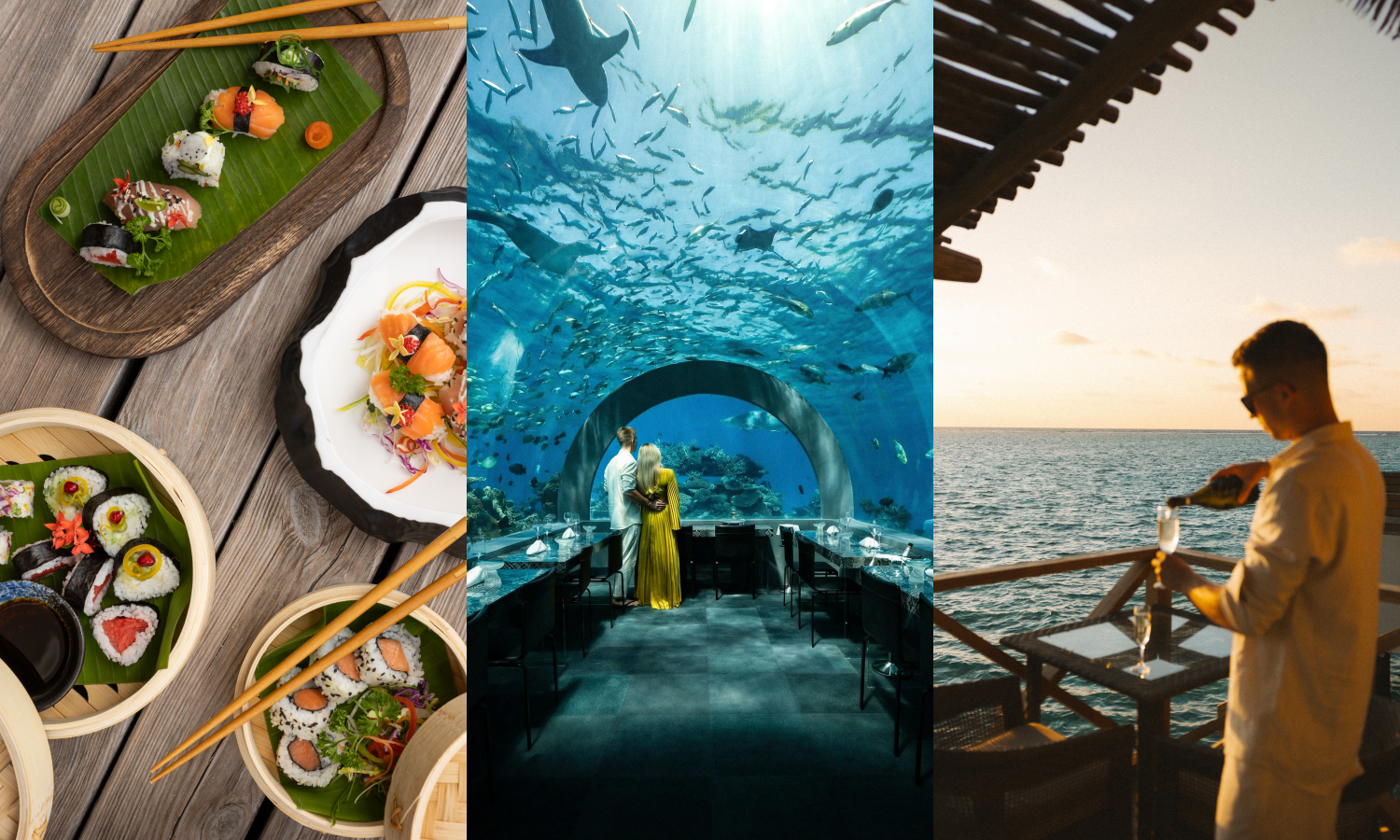
You & Me Maldives, the adults-only luxury retreat under The Cocoon Collection, has announced the launch of its new Premium All Inclusive experience, aimed at enhancing island stays through a more seamless and comprehensive offering in the Indian Ocean.
The Premium All Inclusive experience is designed to begin from the point of arrival. Guests receive complimentary access to The Cocoon Collection Lounge at the seaplane terminal at Velana International Airport, where services are provided to ensure a smooth transition before the journey to the resort.
On arrival at the island, guests are welcomed in their villas with a chilled bottle of sparkling wine and a selection of canapés. The Premium All Inclusive plan includes unlimited premium beverages by the glass, featuring a curated range of wines, signature cocktails, top-shelf spirits, international beers and non-alcoholic options. The in-villa minibar is replenished daily with soft drinks, international beers, red and white wines, as well as assorted snacks. For stays of five nights or more, guests also receive two bottles of premium liquor from a selected list, provided once during the stay.
The experience further includes a range of activities. Guests staying a minimum of three nights are offered one sunset cruise and one snorkelling excursion per stay, while those staying seven nights or more are entitled to a catamaran cruise. Unlimited use of snorkelling equipment and non-motorised water sports, including canoeing, kayaking and paddle boarding, is also included, subject to weather conditions.
Dining forms a central part of the Premium All Inclusive concept. Guests can enjoy three themed dining evenings, including a seafood barbecue under the stars featuring prawns, lobster and oysters. For stays of five nights or more, guests may also take part in a complimentary group cooking class, with a choice between ethnic or Italian cuisine, led by the resort’s culinary team.
Wellness offerings are also incorporated into the programme, with guests able to participate in up to three complimentary sunrise yoga sessions per stay, subject to availability.
The introduction of the Premium All Inclusive experience reflects the resort’s focus on personalised service and carefully curated stays. The offering is positioned to appeal to couples seeking relaxation, romance or activity-led experiences within an adults-only island setting.
Featured
Eid celebrations at SO/ Maldives blend Arabic tradition and Maldivian culture

SO/ Maldives is inviting global travellers this season to reimagine Eid not merely as a holiday, but as an immersive island escape. Located just 15 minutes by speedboat from Malé, the fashion-forward private island retreat sets the stage for a celebration where cultural heritage, contemporary luxury and tropical glamour come together.
At the centre of the festivities is an authentic culinary experience at Hadaba, the resort’s award-winning Arabic restaurant. Guests are offered Levantine flavours, artisanal mezze and traditional recipes presented with a modern approach, creating a setting for shared dining and celebration. As part of the resort’s dine-around concept, Hadaba can be included in a wider culinary journey across the island, allowing guests to experience Arabic cuisine alongside the resort’s other dining venues.
As evening falls, celebrations move to Lazuli Beach Club, where shisha rituals and Arabic-inspired refreshments are served in a beachfront setting. Traditional performances are complemented by Maldivian Boduberu drumming and fire dance displays, creating a cultural programme designed to appeal to international travellers seeking meaningful experiences.
Across the island, Eid is marked through a series of curated activities aimed at encouraging connection and creativity. Cultural workshops, including palm-leaf artistry and henna sessions, offer opportunities to explore heritage, while younger guests are engaged through themed crafts, interactive games and sweet treat decorating. The overall atmosphere remains celebratory while maintaining a relaxed pace that reflects the resort’s character.
Beyond the festive programme, the resort positions the long weekend as a fully immersive island retreat. Guests stay in beach and overwater villas featuring private pools and ocean views, with interiors inspired by high fashion. Time is spent between spa treatments, lagoon activities, beach club experiences and sunset dining, balancing celebration with seclusion.
To mark the season, the resort has introduced two limited-time stay offers. The One Night on Us offer provides savings of 33 per cent on stays of three nights or more, along with daily breakfast, complimentary transfers and spa privileges. The Soo Summer package offers preferential rates combined with spa experiences, curated dining inclusions and additional benefits for water villa stays.
Welcoming travellers from Europe, Asia, the Middle East and beyond, the resort presents Eid as a global celebration where Arabic traditions, Maldivian culture and contemporary design are brought together. This season, guests are invited to exchange routine for island surroundings and experience Eid through a redefined island perspective.
-

 Cooking1 week ago
Cooking1 week agoA spring of flavours: Nowruz dining series at JW Marriott Maldives Resort & Spa
-
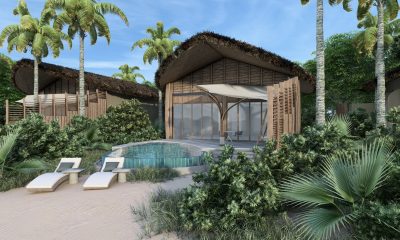
 News1 week ago
News1 week agoPulse Hotels & Resorts unveils Aura Maldives, a mindful luxury sanctuary
-
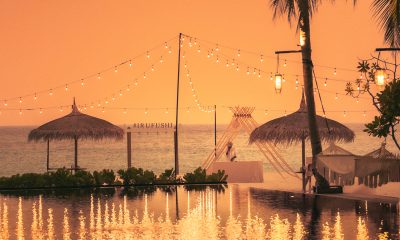
 News1 week ago
News1 week agoSun Siyam Iru Fushi sets new nenchmark with 24 Hour Premium All Inclusive Dine Around
-
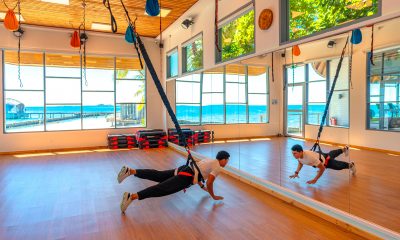
 Fitness1 week ago
Fitness1 week agoOUTRIGGER Maldives Maafushivaru launches expanded wellness programming for 2026
-
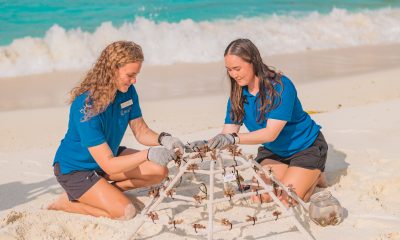
 Action1 week ago
Action1 week agoSheraton Maldives Full Moon celebrates sixth anniversary of Reefscapers collaboration
-
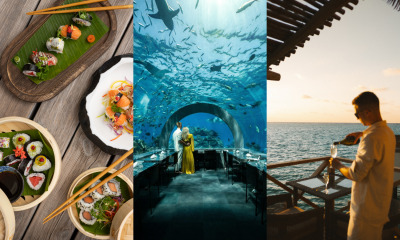
 Featured1 week ago
Featured1 week agoYou & Me Maldives unveils curated Premium All Inclusive programme
-
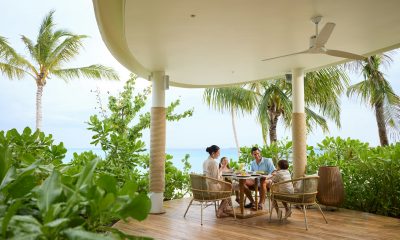
 Awards6 days ago
Awards6 days agoCentara Mirage Lagoon Maldives named Luxury Family Friendly Resort of the Year
-
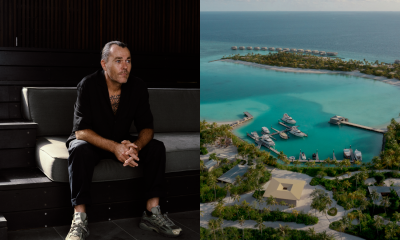
 Cooking1 week ago
Cooking1 week agoPatina Maldives hosts Chef Shannon Bennett for exclusive April residency











